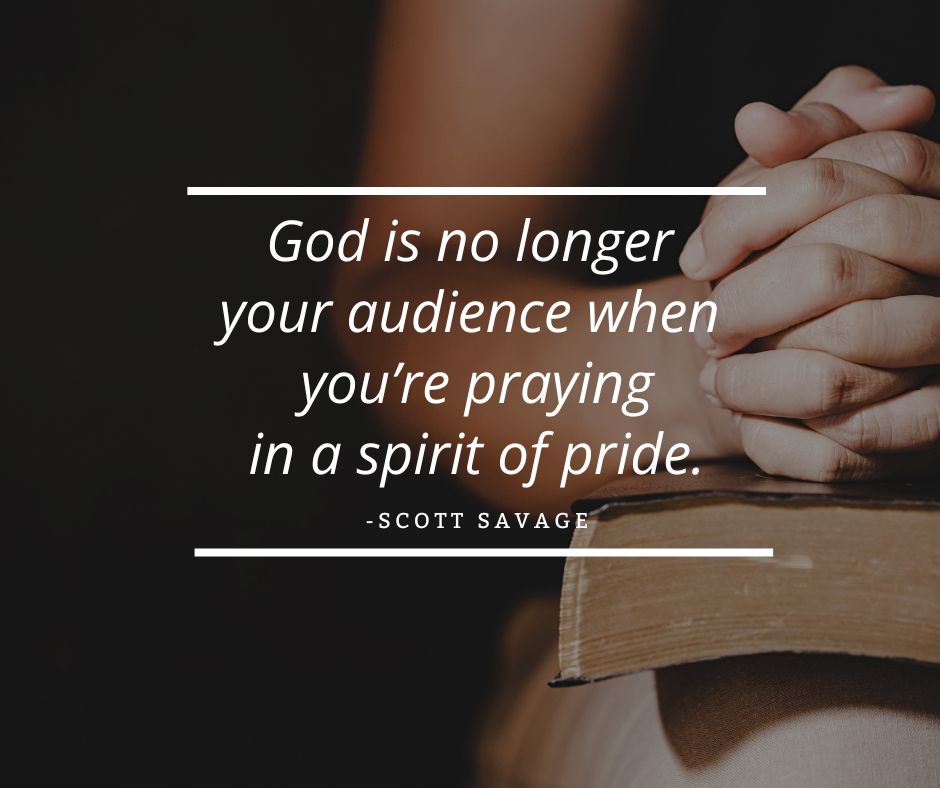Help! I'm Not Good at Prayerনমুনা


Several years ago, I received the fanciest wedding invitation I had ever seen. It came in a large box etched in acrylic with beautiful details. The wedding was to be held on the beach in Mexico. My wife and I felt so honored to be invited. We bought plane tickets, made our hotel reservation, and prepared for people to watch our children as we looked ahead to the wedding date in April 2020.
Yeah, as you might have guessed, that destination wedding got canceled, and we never made it to that beach. But I still think about how excited that unbelievable invitation made me.
Jesus used the Parable of the Pharisee and the Tax Collector to make four invitations to the listening people. But the first one may not have been as well received as the one I got for a beach wedding. When Jesus told this parable, He was inviting those listening to humility.
In Luke 18, Jesus contrasts two ways of praying. The Pharisee's prayer was less about God and more about himself. This first prayer was rooted in self-righteousness and a sense of superiority. However, the tax collector's prayer had the exact opposite content and tone.
"But the tax collector stood at a distance. He would not even look up to heaven, but beat his breast and said, 'God, have mercy on me, a sinner.'
"I tell you that this man, rather than the other, went home justified before God. For all those who exalt themselves will be humbled, and those who humble themselves will be exalted."
While the Pharisee measured himself against other people and became proud, the tax collector measured himself against God and became humble. This parable illustrates an important truth. You cannot stand in prayer and authentically converse with God while holding onto pride. Now, your mind may already be going to people you've seen or known who were proud and prayed often.
I have met people like that, too. But here's the secret truth I've discovered. When you are proud, one of two things eventually happens. You either stop praying because, eventually, the sense of conviction from the Holy Spirit becomes so strong that you stop praying to avoid that message, or you begin grandstanding with God.
What is grandstanding? According to one dictionary I accessed, grandstanding is "behaving in a showy or ostentatious manner in an attempt to attract favorable attention from spectators or the media." God is no longer your audience when you're praying in a spirit of pride. Your prayers stop being a dialogue, and they become a monologue.
On the other hand, humility feels much different. Humility feels like a struggle and looks like dependence. I don't know anyone who I describe as humble who has spent their entire life in "easy mode." Each of those people has endured adversity, loss, grief, and pain. Their lives have included long seasons of struggle, which has produced a deep dependence on God's mercy and grace.
When we read invitations in Scripture to pray, we hear an invitation to humility. 1 Peter 5 says that God opposes the proud but gives grace to the humble. It also says that our job is to lower ourselves, and God's job is to raise us up. James 4 records the half-brother of Jesus, inviting us to humble ourselves before the Lord. The early church sang a hymn recorded in Philippians 2 about Jesus' humility and how it was their model for life as His followers.
Today, God invites us to depend on Him, which looks like a humble spirit embodied in the tax collector's prayer. If we reject this invitation, we will likely be humbled. I can tell you from experience that it's far better to humble yourself than to be humbled by God!
In the next reading, I'll share how this kind of humility lays the groundwork for the kind of experience you'd like to have with God every day. It's an invitation that still surprises me today!
About this Plan

If you've ever said, "I'm just not good at prayer," you're not alone! Millions of followers of Jesus struggle with prayer, feeling insecure, self-conscious, and discouraged about this key practice. In the Gospels, Jesus himself told a powerful parable that changed the way his followers thought about and practiced prayer. Who knows? That parable and this plan might just change the way you pray, too.
More









